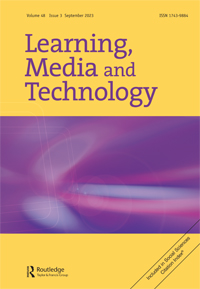Language, artificial education, and future-making in indigenous language education
IF 3.1
1区 教育学
Q1 EDUCATION & EDUCATIONAL RESEARCH
引用次数: 0
Abstract
This paper examines how language-based artificial intelligence is envisaged to imagine new futures for indigenous languages. It draws on the visions, programmes, and plans of six language initiatives that are developing language technology for often-marginalised indigenous, tribal, and minority (ITM) languages, such as Gondi, Maithili, Rajasthani and Mundari, in India. We note three distinct discourses: (1) technological optimism in utilising these new opportunities by claiming space for otherwise-marginalised languages, (2) the imperative for collaborative and collective work in order to address sparse datasets, and (3) the need to negotiate the contested nature of imagining a new collective future. This paper argues that indigenous language technology is not just a technical project but a contested process of subverting linguistic hierarchy through the ‘active presencing’ of these languages. Overall, the paper emphasizes the need for a nuanced approach that recognizes the interplay between technology, language education, and broader social and political factors.土著语言教育中的语言、人工教育与未来创造
本文探讨了如何设想基于语言的人工智能来想象土著语言的新未来。它借鉴了六项语言倡议的愿景、方案和计划,这些倡议正在为印度的贡迪语、迈蒂利语、拉贾斯坦语和蒙达里语等经常被边缘化的土著、部落和少数民族语言开发语言技术。我们注意到三种不同的话语:(1)通过为被边缘化的语言争取空间来利用这些新机会的技术乐观主义,(2)为了解决稀疏数据集而进行协作和集体工作的必要性,以及(3)需要就想象一个新的集体未来的争议性进行谈判。本文认为,土著语言技术不仅仅是一个技术项目,而且是一个通过这些语言的“积极存在”来颠覆语言等级的有争议的过程。总的来说,本文强调需要一种细致入微的方法,认识到技术、语言教育和更广泛的社会和政治因素之间的相互作用。
本文章由计算机程序翻译,如有差异,请以英文原文为准。
求助全文
约1分钟内获得全文
求助全文
来源期刊

Learning Media and Technology
EDUCATION & EDUCATIONAL RESEARCH-
CiteScore
11.40
自引率
14.50%
发文量
53
期刊介绍:
Learning, Media and Technology aims to stimulate debate on digital media, digital technology and digital cultures in education. The journal seeks to include submissions that take a critical approach towards all aspects of education and learning, digital media and digital technology - primarily from the perspective of the social sciences, humanities and arts. The journal has a long heritage in the areas of media education, media and cultural studies, film and television, communications studies, design studies and general education studies. As such, Learning, Media and Technology is not a generic ‘Ed Tech’ journal. We are not looking to publish context-free studies of individual technologies in individual institutional settings, ‘how-to’ guides for the practical use of technologies in the classroom, or speculation on the future potential of technology in education. Instead we invite submissions which build on contemporary debates such as: -The ways in which digital media interact with learning environments, educational institutions and educational cultures -The changing nature of knowledge, learning and pedagogy in the digital age -Digital media production, consumption and creativity in educational contexts -How digital media are shaping (and being shaped by) educational practices in local, national and global contexts -The social, cultural, economic and political nature of educational media and technology -The ways in which digital media in education interact with issues of democracy and equity, social justice and public good. Learning, Media and Technology analyses such questions from a global, interdisciplinary perspective in contributions of the very highest quality from scholars and practitioners in the social sciences, communication and media studies, cultural studies, philosophy, history as well as in the information and computer sciences.
 求助内容:
求助内容: 应助结果提醒方式:
应助结果提醒方式:


